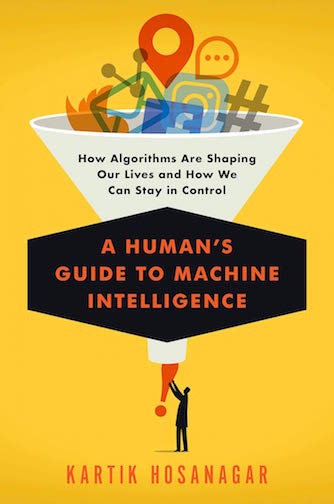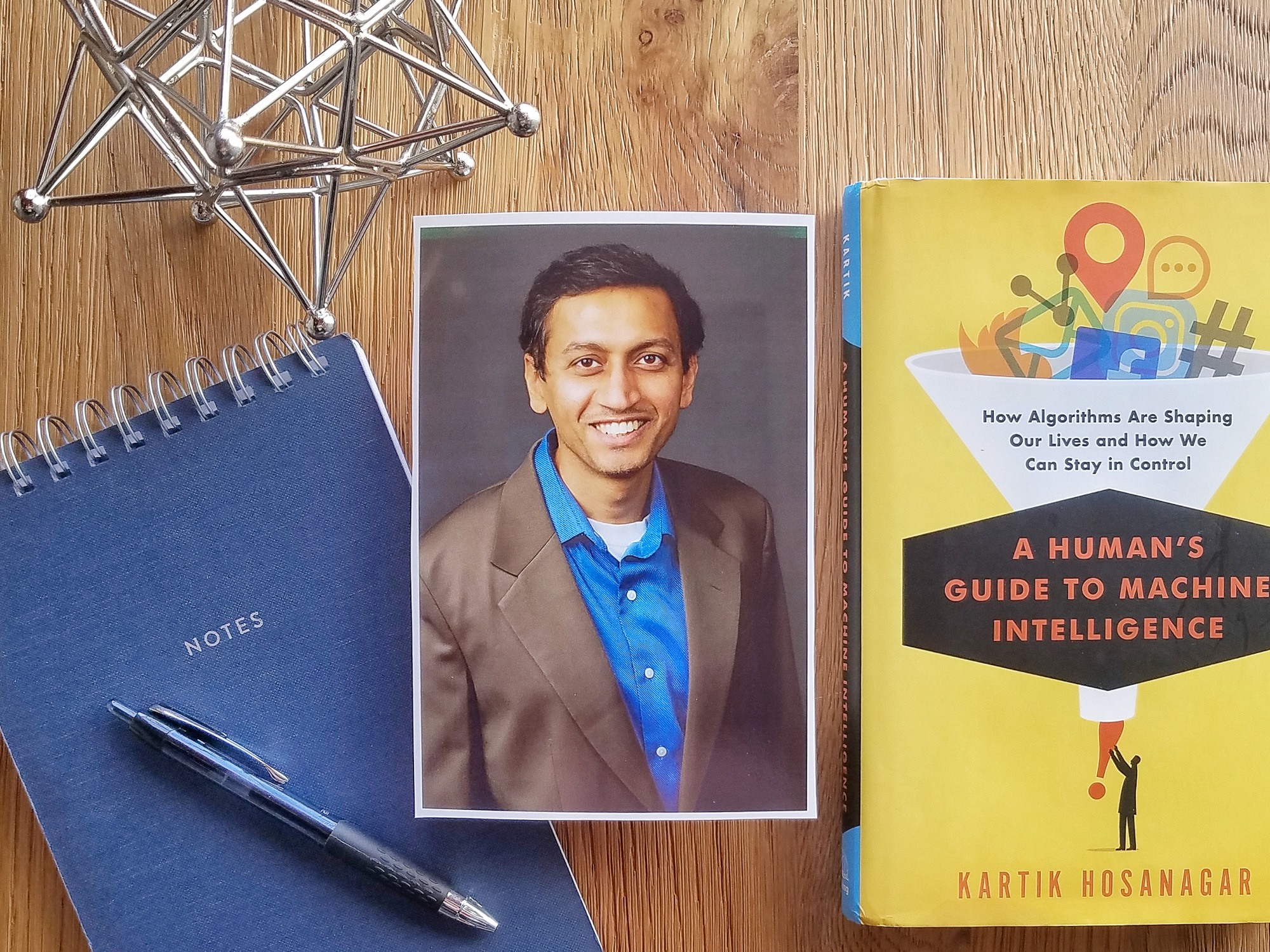Biography
Book Kartik Hosanagar through The Keynote Curators.
Kartik Hosanagar is Faculty Co-Lead, Wharton AI & Analytics for Business, a tech entrepreneur and the John C. Hower Professor of Technology and Digital Business and a Professor of Marketing at The Wharton School of the University of Pennsylvania. Kartik Hosanagar’s research work focuses on the digital economy, in particular, the impact of analytics and AI algorithms on consumers, business, and society, digital media and marketing, and e-commerce. He is the author of A Human’s Guide to Machine Intelligence.
Kartik Hosanagar has been recognized as one of the world’s top 40 business professors. He is a ten-time recipient of MBA or Undergraduate teaching excellence awards at the Wharton School. Kartik co-founded and developed the core IP for Yodle Inc , a venture-backed firm that Web.com acquired. Inc. Magazine listed Yodle among America’s fastest-growing private companies. He has invested in or served on the advisory boards of over a dozen venture-backed startups. Kartik Hosanagar was a co-host of the SiriusXM show The Digital Hour. He currently serves as a department editor at the journal Management Science.
Kartik Hosanagar graduated at the top of his class with a Bachelors degree in Electronics Engineering and a Masters in Information Systems from Birla Institute of Technology and Sciences (BITS, Pilani), India, and he has an MPhil in Management Science and a PhD in Management Science and Information Systems from Carnegie Mellon University. Outside of Wharton, he likes to make short films and start companies.
Contact us for Kartik Hosanagar’s fees and availability.
Videos
Kartik Hosanagar- Keynote
AI Governance & Risk Management | Kartik Hosanagar | Talks at Google
How Personalization Helps Brands Win Market Share
Wharton undergraduate commencement speech '14
Speech TopicsExpand each topic to learn more
Generative AI — such as ChatGPT — might change everything we know about knowledge, research, and content creation. Or reshape the workforce and the skills employees need to thrive. Or even upend entire industries and societies. As AI starts to automate cognitive tasks like writing and artwork, it is worth asking “what is creativity?” and “what is its association with intelligence?” This talk will provide a concise introduction to generative AI and explore the broader implications of Generative AI on business and society.
Through the technology embedded in almost every major tech platform and device, algorithms and the artificial intelligence that underlies them make a staggering number of everyday decisions for us, from what products we buy, to where we decide to eat, to how we consume our news, to whom we date, and how we find a job. We’ve even delegated life-and-death decisions to algorithms–decisions once made by doctors, pilots, and judges. In this talk, Kartik surveys the brave new world of algorithmic decision-making and reveals the potentially dangerous biases they can give rise to as they increasingly run our lives. He makes the case that we need to arm ourselves with a better, deeper, more nuanced understanding of the phenomenon of algorithmic thinking. And he gives us a route in, pointing out that algorithms often think a lot like their creators–that is, like you and me. Kartik draws on his experiences designing algorithms professionally–as well as on history, computer science, and psychology–to explore how algorithms work and why they occasionally go rogue, what drives our trust in them, and the many ramifications of algorithmic decision-making. He examines episodes like Microsoft’s chatbot Tay, which was created to converse on social media like a teenage girl, but instead turned sexist and racist; the fatal accidents of self-driving cars; and even our own common, and often frustrating, experiences on services like Netflix and Amazon. The talk is an entertaining and provocative look at one of the most important developments of our time and a practical user’s guide to artificial intelligence.
Artificial Intelligence (AI) represents the next big paradigm shift for businesses after the Internet and cloud computing. Driven by a fear of losing out, companies in many industries have announced AI-focused initiatives. However, Kartik believes most of these efforts will fail. They will fail not because AI is all hype, but because companies are approaching AI-driven innovation incorrectly. In this talk, Kartik draws on his own experiences designing AI applications for business and shares why AI is a radical paradigm change that most companies will struggle with and how businesses can successfully transform themselves around this new phenomenon. He examines how companies like Google have reinvented themselves around AI and how the same principles used by Google are applicable with your enterprise as well.
Blog Posts
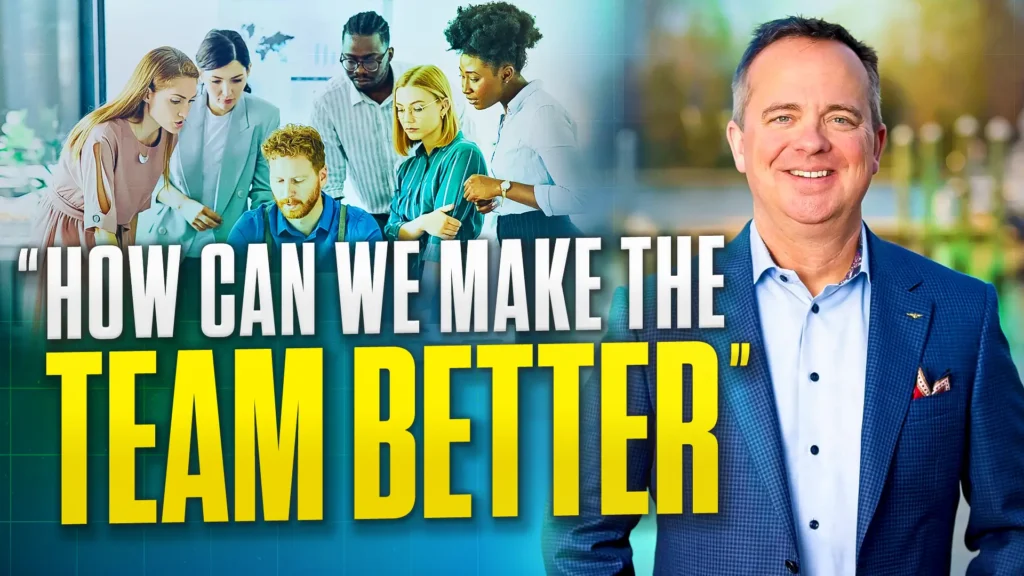
Confidence Without Vulnerability Creates Teams That Never Improve
Can ego and vulnerability coexist in teams that actually win? Most leaders think they have to choose. Either you build confident people who believe they're excellent, or you create humble people who accept feedback. Either...
Read More
Financial Planning in 2026 Requires a Clear Strategy
Have you noticed that the internet has never given more financial planning advice than it does right now? That's actually the problem. Your feed has become a 24/7 trading floor of hot takes. "Buy this."...
Read More
Crisis Leadership Lessons from September 11 Reveal Everyday Resilience
What if the most powerful crisis leadership lesson from September 11 isn't about the decisions made in underground bunkers, but about the farmers, truckers, teachers, and everyday workers who make heroic responses possible? After sharing...
Read More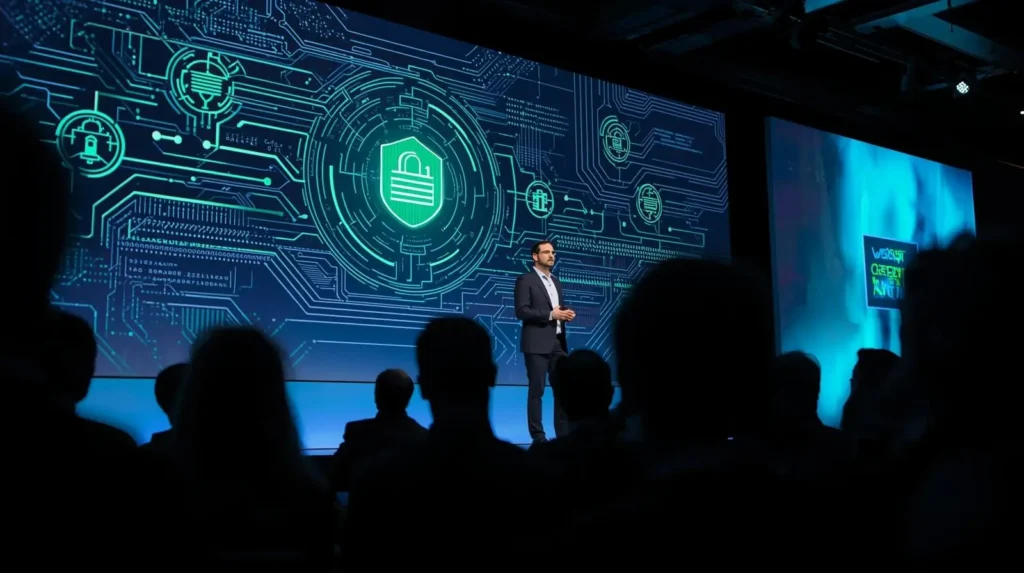
Best Artificial Intelligence Speakers for Cybersecurity Conferences (2026 Guide)
Quick Links Artificial Intelligence Speakers Healthcare Keynote Speakers Top Technology Speakers Innovation Speakers Leadership Speakers Future of Work Speakers Get Proposal (availability & fees) If you’re searching for the Best Artificial Intelligence Speakers for Cybersecurity...
Read More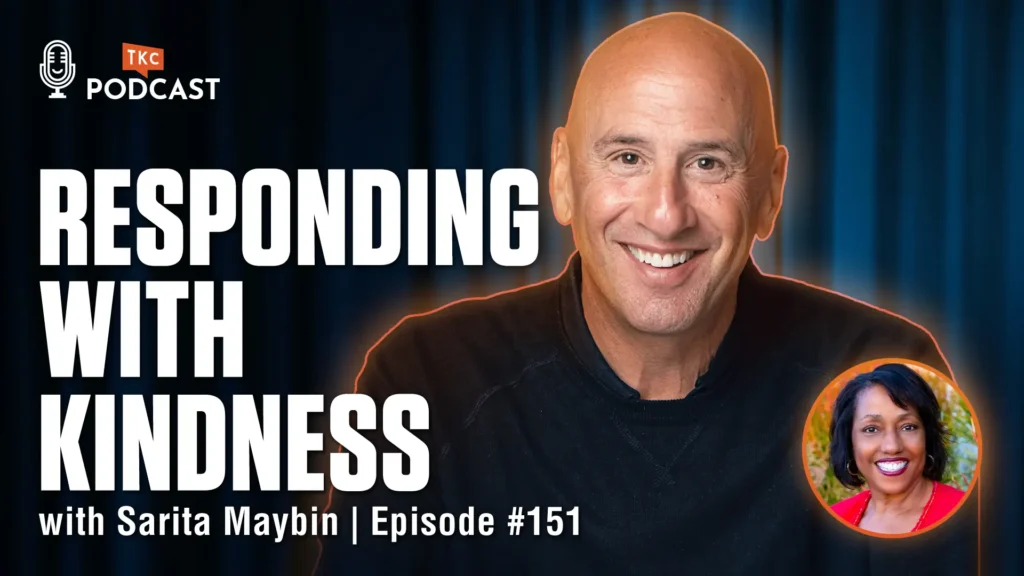
Communication Strategies from Sarita Maybin that Transform Workplace Conflict Into Collaboration
Why Your Team's Real Problem Isn't Strategy—It's Communication When was the last time a workplace conversation went sideways, not because of what was said, but how it was delivered? Most organizations pour resources into strategic...
Read More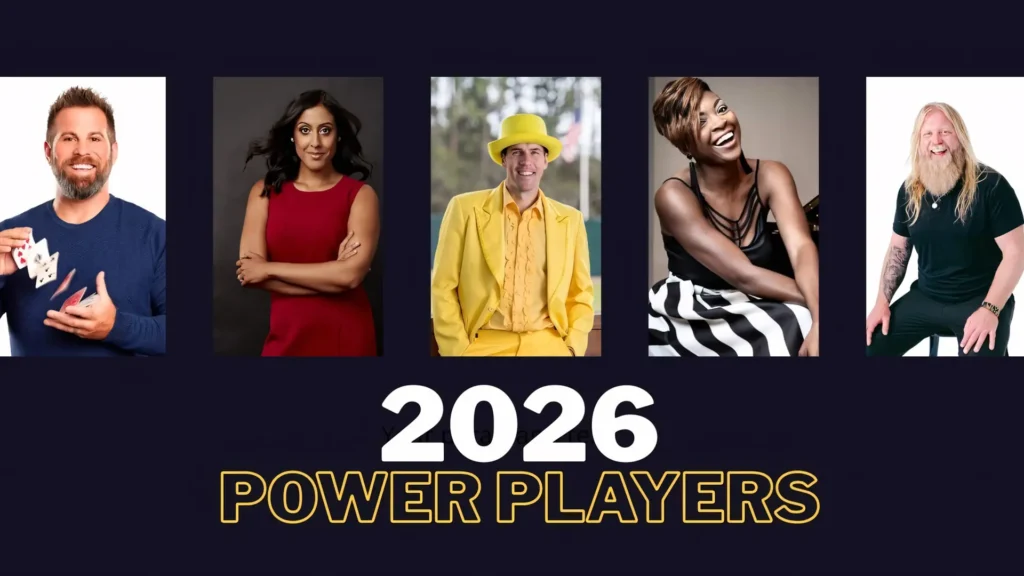
The 2026 Keynote Speaker Lineup That Creates Real Momentum
If you're looking for a sign to power start your 2026, here it is: this is the year you stop negotiating with your potential. January arrives packed with goals, spreadsheets, and ambitious plans. However, goals...
Read MoreRelated Artificial Intelligence Speakers
Get in TouchContact US
Fill out the form so we can best understand your needs.
A representative from The Keynote Curators will reach out to you.

